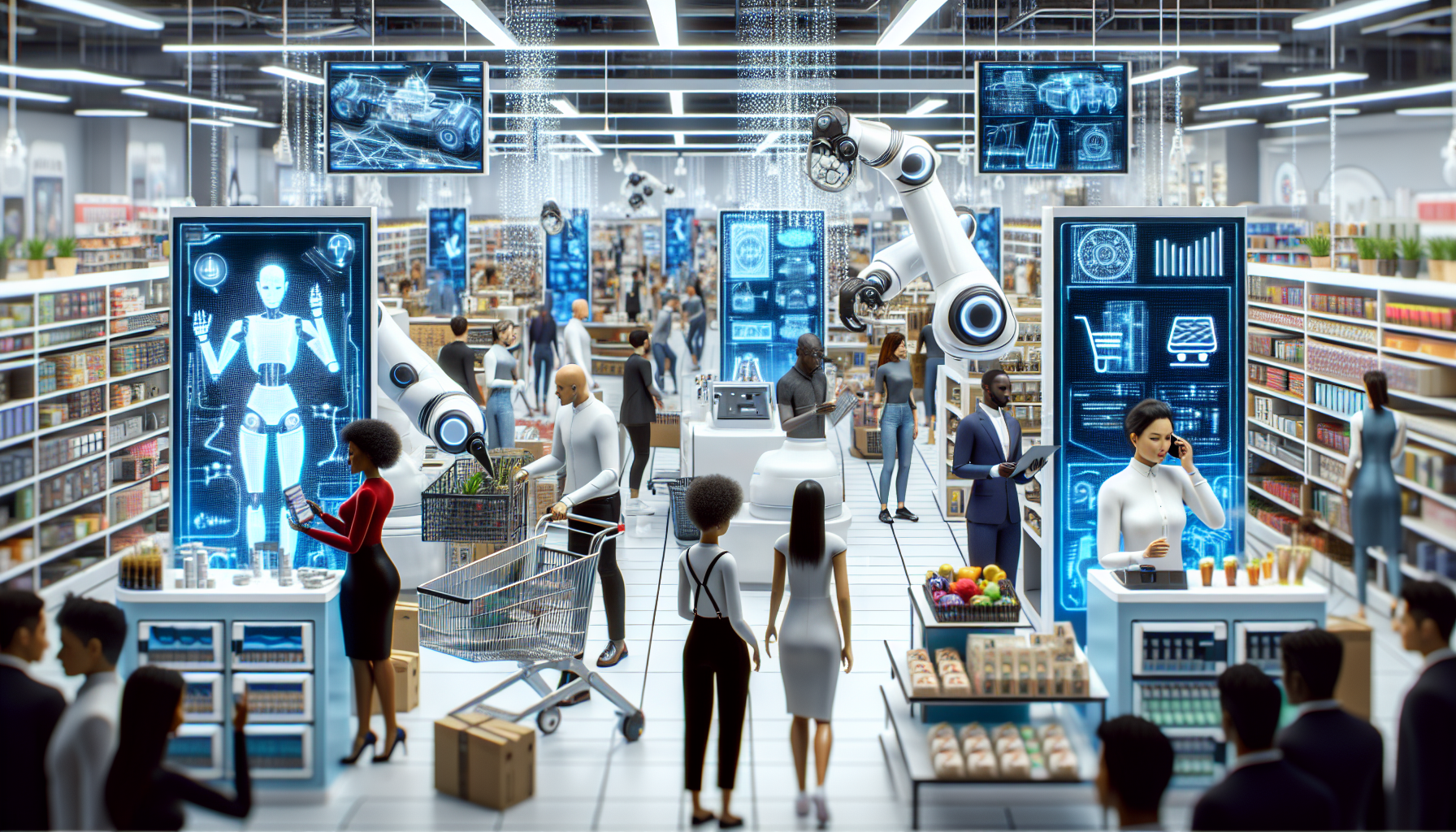Harnessing AI and Automation in Retail: Transforming Customer Experiences
Understanding AI and Automation in Retail
Artificial Intelligence (AI) and automation technologies have become pivotal for modern retail, revolutionizing operations and customer experiences. Retailers are increasingly adopting AI tools to streamline processes, enhance customer service, and provide personalized shopping experiences.
The Role of AI in Retail
AI plays a crucial role in several key areas:
1. Personalization of Customer Experiences
AI technology analyzes vast amounts of customer data to tailor experiences. By utilizing machine learning algorithms, retailers can understand customer preferences and predict future purchases. This personalization manifests in various ways:
- Recommendation Engines: Platforms like Amazon and Netflix use AI to recommend products based on previous interactions, thus increasing conversion rates.
- Dynamic Pricing: AI can analyze market trends and customer behavior to adjust pricing in real-time, ensuring competitiveness while maximizing revenue.
2. Customer Service Enhancements
AI-powered chatbots and virtual assistants have transformed customer service. These tools provide immediate responses to customer inquiries, making shopping more accessible. Key advantages include:
- 24/7 Availability: AI chatbots can handle queries outside regular business hours, improving customer satisfaction.
- Instant Issue Resolution: Bots can provide instant solutions to common problems, freeing human agents to tackle complex issues.
Automation in Retail Operations
Automation complements AI by streamlining processes to increase efficiency and reduce costs. Key areas affected include:
1. Inventory Management
Automated inventory management systems use AI algorithms to forecast demand, track stock levels, and replenish inventory seamlessly. Advantages include:
- Reduced Stockouts: Real-time data analysis helps retailers maintain optimal stock levels, ensuring popular items are always available.
- Minimized Waste: By predicting demand accurately, retailers can reduce overstock, leading to less waste and improved profitability.
2. Supply Chain Efficiency
AI and automation enhance supply chain operations through better logistics planning and real-time tracking of goods. This development offers several benefits:
- Predictive Analytics: AI can analyze various data sources, including weather patterns and market trends, to optimize delivery routes and schedules.
- Operational Cost Reduction: Automation in warehouse management, including robotic process automation (RPA), minimizes human error and accelerates order fulfillment.
Enhancing In-Store Experiences
AI and automation are reshaping the traditional retail environment as well. Here’s how these technologies enhance brick-and-mortar shopping:
1. Smart Shelves and RFID
Retailers are leveraging smart shelf technology and RFID (Radio Frequency Identification) tags to provide a seamless shopping experience. Key features include:
- Real-Time Inventory Tracking: RFID helps retailers monitor stock levels in real-time, ensuring shelves are adequately stocked.
- Customer Engagement: Smart shelves can display personalized promotions based on customer data analytics, driving immediate purchases.
2. Checkout Innovations
Automation in checkout processes significantly reduces wait times:
- Self-Checkout Stations: These allow customers quick access to purchase items without long lines, improving overall satisfaction.
- Mobile Payment Options: Enabling payments via mobile apps facilitates a smooth checkout experience, appealing to tech-savvy shoppers.
Data-Driven Insights for Strategy Development
The data collected through AI and automation tools provides invaluable insights that help retailers refine their strategies. Here’s how:
1. Customer Behavior Analysis
AI enables retailers to analyze purchasing patterns and customer behavior deeply. This information can guide:
- Targeted Marketing Campaigns: By knowing what customers like, retailers can curate marketing messages that resonate, driving higher engagement rates.
- Product Development: Insights from consumer preferences can inform product design and offering, ensuring alignment with market demand.
2. Enhanced Decision-Making
Automation in reporting and data analysis leads to faster decision-making. Retailers can draw on accurate, real-time data to:
- Optimize Store Layouts: Understanding foot traffic patterns allows retailers to arrange products strategically, maximizing sales opportunities.
- Adjust Marketing Strategies: Real-time data helps in experimenting with different marketing approaches and determining the most effective tactics.
Challenges of Implementing AI and Automation
While the benefits are clear, retailers face challenges in adopting AI and automation technologies, such as:
1. Integration with Legacy Systems
Many retail operations rely on outdated technology that can complicate the integration of new AI tools. Overcoming this requires:
- Investments in Upgrading Systems: Moving to cloud-based solutions that allow for seamless integration with AI technologies.
- Training Staff: Ensuring that employees are trained to work effectively alongside new systems.
2. Data Privacy Concerns
With increased data collection comes the responsibility to maintain customer privacy. Retailers must:
- Implement Robust Security Measures: Protect customer data through encryption and secure storage practices.
- Adhere to Regulations: Compliance with GDPR and similar regulations helps build trust and protects customers.
The Future of AI and Automation in Retail
The future of retail is undeniably intertwined with advancements in AI and automation. Emerging trends include:
1. Enhanced Augmented Reality (AR) Shopping Experiences
AR applications are being developed to enhance the shopping experience, allowing customers to visualize products in their own homes. For instance:
- Virtual Try-Ons: Retailers in the fashion and cosmetics industries are developing AR tools that let customers try on products virtually, reducing returns and enhancing satisfaction.
2. Advanced Analytics for Predictive Marketing
As AI technologies evolve, predictive analytics will become more accurate. Retailers will benefit from:
- Hyper-Personalization: Marketing efforts will be further tailored to individual customers’ preferences, leading to greater customer loyalty and trust.
Conclusion
Incorporating AI and automation into retail not only optimizes operations but profoundly transforms the customer experience. As technology continues to advance, retailers that leverage these innovations will be better positioned to meet customer demands and thrive in a competitive landscape.


